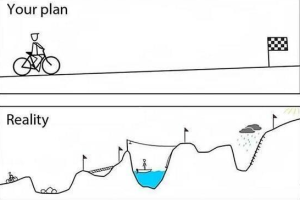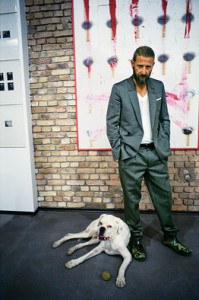
A few weeks ago, I had the opportunity to chat with Dirk Knemeyer, founder of Facio. Always love the conversations I have with Dirk. So happy to finally share one of those with you. Enjoy!
What trends are you seeing in how organizations and employees are engaging via mobile and desktop technology?
The shift from “company phones” to allowing employees to use their personal phones for company business has been a big one. That was largely driven by the iPhone, where executives sort of strong-armed IT into allowing it and has trickled down through companies in the years since. Also, the rapid adoption of iPads and other tablets has been a bit of a surprise. The result of both these things is a surprisingly rapid shift toward major enterprise apps behaving with mobiles and tablets either in a truly native way or with experiences that are “as-if” native. This opens up rich possibilities for people to work differently. So many of us, for decades now, have sat behind a desk at a computer. Now that it is no longer structurally necessary we are also learning about how bad sitting all day is on our bodies, especially our hearts. So this is a moment where technology enables companies to re-think how knowledge workers actually work at a time where the physical damage our work does to us is being scientifically understood. So I think the workplace proliferation of alternative computing technologies will accelerate a trend toward non-traditional work environments such as from home and shared spaces. It should be fun to see.
Can an individual, inside or outside of work, use your technology to measure and track their personal growth?
Yes. We designed Facio for both personal and professional use. On the personal side, each day you can record your happiness, effectiveness, and how well you are getting on with others. It is like a “quantified self for behavior”. Professionally, we have a wider range of 360 tools where both yourself and those you work with can report on your behaviors, skills and natural preferences. Viewing your data over time is an important part of the story, to help you understand yourself and those important to you. It is all web-based so, unlike other similar tools you may have taken now-and-then, this lets you and anyone you give permission to view really nice graphics showing a slice of who you are.
What’s the biggest obstacle in using technology to improve performance in life and work?
Commitment. Using software to improve performance shares a lot psychologically in common with things such as a workout regiment or diet. If it becomes a habit and you are committed to that it is fantastic. But it is easy for people to forget, or miss some time, and just not get back fully into it. For those that do, though, the impact on their lives is profound.
What inspired you to start Facio?
I’ve never fit in. I was a high school drop out, sent to reform school. I became an entrepreneur because after a couple of years at a company I simply didn’t fit any more, quitting or getting fired out of restlessness, essentially. I was married at 18 and divorced at 25. All of this happened because I didn’t understand who I was. The culture, the education system…forget that it is not designed for someone like me. It did not even give me knowledge as to who I was, why I didn’t fit in, and where perhaps I could fit.
I’m an extreme example, but look at the work world. More than 70% of people are not engaged in their jobs. That is real research, from Gallup. Engaged employees work harder, work better, and are generally happier in their personal lives as well. The fact that less than 30% of us are engaged is literally a tragedy. It is lives that could and should be happier. It is companies that are getting far less from the people they are paying. This is not rocket science; it is solvable. I want to solve it.
You’re an entrepreneur who has succeeded on more than one venture, what’s been your greatest lesson learned?
“Greatest” is always a hard one. I think it is the importance and value of business partners. I’ve had at least one co-founder in every venture I’ve ever done. The ones that have been least successful are those where one of the principals is less involved. The times I’ve had my greatest success is when it is two or three people who are “all in” and working together as a team toward the shared goal. For me, at least, it is simply essential.
Beginning with his university training and culminating in 18 months of extensive research building up to the launch Facio, founder Dirk Knemeyer is certified in the MBTI®, Hogan Assessments®, Everything DiSC® and the Hermann Brain Dominance Instrument®, and has made understanding the human condition his personal passion. In addition, Dirk has worked at the vanguard of the software industry. He is the co-founder of Involution Studios, which has carved out a reputation as a best-of-breed choice for companies who aspire to offer the best apps in the world.










